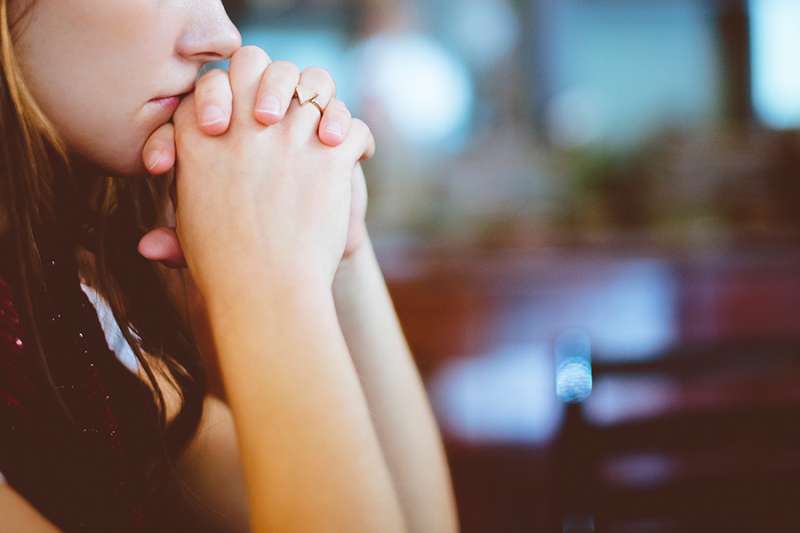A survey of both male and female religious superiors in the U.S. found that most believe that the Church can and should ordain women as deacons.
Almost three-quarters of responding superiors said they think it is possible to sacramentally ordain women deacons, and that the Church should do so. Only 45 percent, however, believe the Church will do so.
The survey, released this week by The Center for Applied Research in the Apostolate at Georgetown University (CARA), reached out to all 777 U.S. religious institutes and societies of apostolic life. These included members of the Conference of Major Superiors of Men (CMSM), the Council of Major Superiors of Women Religious (CMSWR), and the Leadership Conference of Women Religious (LCWR), as well as 137 contemplative women’s groups.
Only men may be ordained priests under Catholic teaching. Pope Francis has reiterated on numerous occasions that this doctrine is definitive and cannot be changed. However, non-ordained female deacons were part of the early Church, although it is not entirely clear what their role was.
The question of female deacons has recently resurfaced amid Pope Francis appointing a commission to look into the historical role of female deacons in the ancient Church.
Of religious superiors surveyed, 76 percent had known about the commission. Most — 84 percent — believed that ordaining women as deacons would create at least some greater call for women priests.
Among respondents, 78 percent of superiors said sacramental ordination of women deacons would be somewhat or very important for the Church, but only 45 percent said it would be somewhat or very important for their religious communities. Sixty-one percent said they did not think the ordination of women as deacons would increase candidates seeking to join their communities.
Nearly 60 percent of major superiors of women who provided a response said they would consider allowing members to be ordained if the diaconate were opened to women as an ordained ministry. Half said they do not think any of their current members are interested in becoming a deacon.
In addition, open-ended questions were presented to female superiors about benefits and challenges of ordaining women to the diaconate.
“The most common benefits cited include a greater capacity to perform liturgical and sacramental duties, a greater acceptance of women and their gifts in the Church, and the continuation of current ministries but with a higher status,” CARA said.
“Challenges and concerns frequently noted include confusion over who the deacon would be accountable to, the acceptance of female deacons by clergy and other religious, concerns that it would create a two-tiered membership within religious communities, the issue of balance between community life and a deacon’s ministry to the external community, and that this step would reinforce the hierarchal structure of the Catholic Church.”
In August 2016, Pope Francis instituted a commission for the study of women deacons, after the topic was raised at a papal audience with a group of religious sisters in May.
At the audience, one sister asked why the Church does not include women in the permanent diaconate and suggested that a commission be established to study the possibility.
Pope Francis expressed his openness to establishing such a commission. Several weeks later, he told a group of journalists that he was upset by media reports suggesting that he had endorsed the idea of female deacons.
“They said: 'The Church opens the door to deaconesses.' Really? I am a bit angry because this is not telling the truth of things,” the pope said.
“We had heard that in the first centuries there were deaconesses,” he continued. “One could study this and one could make a commission. Nothing more has been requested.”
Francis acknowledged that the subject of women deacons has already been studied by the Church, including a 2002 document from the International Theological Commission, and advisory body to the Congregation for the Doctrine of the Faith.
The document, which gave a thorough historical context of the role of the deaconess in the ancient Church, overwhelmingly concluded that female deacons in the early Church had not been equivalent to male deacons, and had neither a liturgical nor a sacramental function.
Heading Francis’ commission on the study of women deacons is Prefect of the Congregation for the Doctrine of the Faith, Cardinal Luis Ladaria.
In June 2018, Ladaria clarified that “the Holy Father did not ask us to study whether or not women can be deaconesses…but rather, [he asked us] to try to say in a clear way what the problems are and what the situation was in the ancient Church on this point of the women's diaconate.”
“We know that in the ancient Church there were so-called deaconesses: what does this mean? Was it the same as deacons, or was it something different? Was it a large, or rather local reality?

